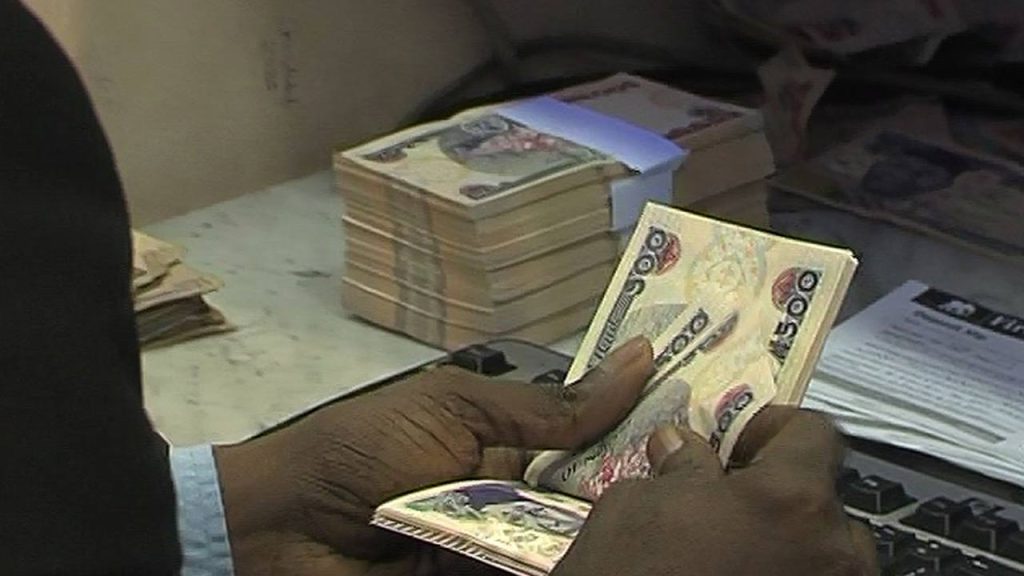The Silent Burden of Financial Trauma in Nigeria
The economic landscape of Nigeria, characterized by persistent inflation, escalating food prices, and a depreciating currency, has inflicted more than just financial strain on its citizens. It has eroded their sense of security, shaken their identity, and taken a toll on their mental well-being. Beyond the quantifiable metrics of economic hardship, a more insidious crisis is unfolding: financial trauma. This pervasive issue, often overlooked or dismissed in a society prioritizing survival, manifests as deep-seated fear, anxiety, and shame related to earning, spending, saving, and even discussing money.
Francis David’s experience exemplifies the struggles of many Nigerians grappling with financial trauma. Despite a decent income, he found himself perpetually short of funds, his money seemingly disappearing without a trace. This constant financial instability triggered intense anxiety, shame, and a sense of powerlessness. His meticulous budgeting and spending tracking proved futile against the relentless erosion of his resources. David’s plight resonates with countless individuals who, despite their best efforts, find themselves trapped in a cycle of financial insecurity, haunted by the fear of impending financial ruin. This constant state of anxiety and uncertainty not only impacts their financial well-being but also permeates every aspect of their lives, affecting their relationships, work, and overall sense of self-worth.
Financial trauma, a condition gaining recognition in recent years, particularly following the 2007-2008 global financial crisis, stems from prolonged financial instability, poverty, or negative experiences with money, often originating in childhood or past crises. It’s not merely about mismanagement of finances; it’s a deep-seated psychological wound that impacts individuals’ relationship with money. In Nigeria, where the focus often remains on immediate survival, financial trauma often goes undiagnosed and untreated, exacerbating the existing economic struggles. This neglect further perpetuates the cycle of financial instability and emotional distress, hindering individuals’ ability to achieve financial stability and overall well-being.
The impact of financial trauma is far-reaching, manifesting in various ways, including chronic anxiety about the future, avoidance of financial matters like bank statements or investment opportunities, compulsive hoarding, impulsive spending, and overwhelming guilt after financial decisions. These behavioral patterns, driven by underlying emotional wounds, often sabotage individuals’ efforts to improve their financial situation. The anxiety and fear associated with money can become so debilitating that it paralyzes them from taking proactive steps towards financial recovery, reinforcing the cycle of trauma.
Addressing financial trauma requires a holistic approach that acknowledges the interconnectedness of financial and emotional well-being. The emerging field of financial therapy seeks to bridge this gap by combining financial advice with emotional support. It aims to help individuals develop a healthier relationship with money, addressing the underlying emotional issues that drive their financial behaviors. The goal is to empower individuals to regain control of their finances and cultivate a more positive and proactive approach to money management.
Healing from financial trauma involves recognizing its signs, exploring personal money stories, reframing limiting beliefs, practicing financial mindfulness, creating safety through structure, seeking support, and allowing progress over perfection. Recognizing the symptoms, such as persistent fear of poverty even with sufficient funds, guilt after spending on necessities, avoidance of bank statements, and compulsive saving, is crucial for initiating the healing process. Exploring personal experiences and beliefs around money helps uncover the root causes of the trauma. Reframing negative thoughts and practicing mindfulness allows individuals to challenge those beliefs and develop healthier financial habits.
Creating structure through budgeting and setting financial goals provides a sense of control and security. Building even a small emergency fund can significantly reduce anxiety and foster a sense of empowerment. Seeking support from financial therapists, counselors, or support groups offers a safe space to explore these issues and develop coping mechanisms. Embracing progress over perfection is vital, recognizing that setbacks are part of the healing journey. Finally, reclaiming a spiritual perspective on money, viewing it as a tool rather than a source of identity or worth, can help individuals detach from the emotional baggage associated with it.
Breaking free from the shackles of financial trauma is not merely about achieving financial stability; it’s about reclaiming one’s sense of self-worth, agency, and peace of mind. It’s about rewriting the narrative around money and forging a new, healthier relationship with it. This transformation not only benefits the individuals involved but also has a ripple effect on their families and communities, breaking generational cycles of financial fear and insecurity. It empowers individuals to navigate the economic landscape with clarity, confidence, and resilience, creating a future where financial freedom is not just a distant dream but a tangible reality.














